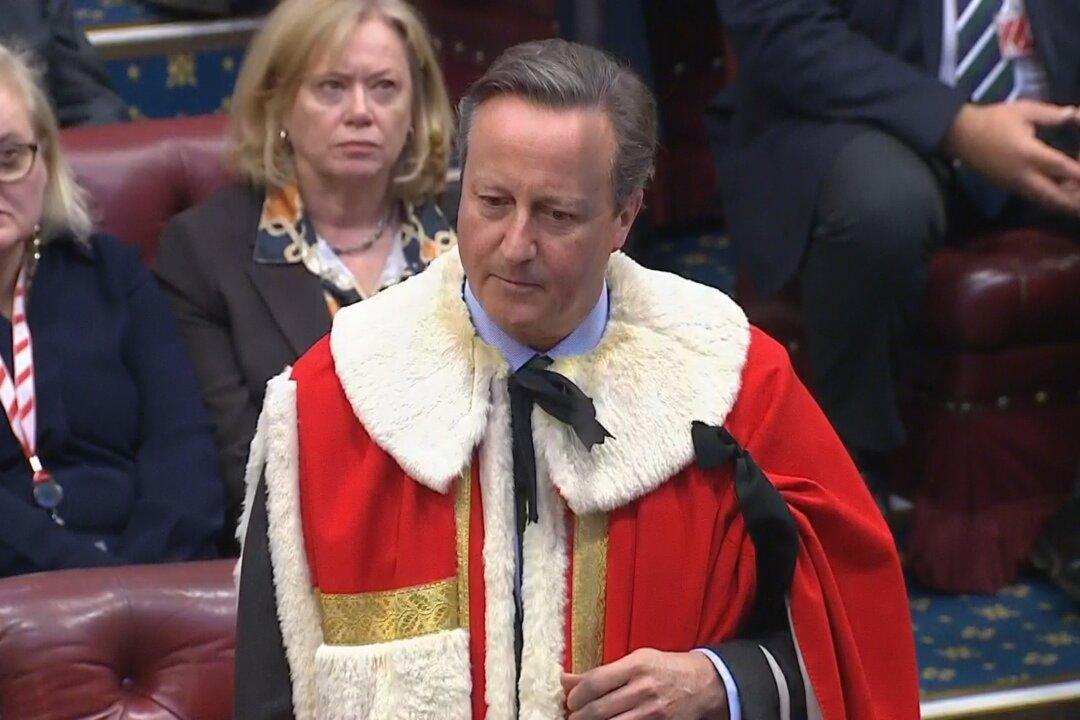Fresh questions have been raised in Parliament on Thursday over Lord Cameron’s promotion of a special economic zone in Sri Lanka that is a part of Beijing’s Belt and Road Initiative.
Since becoming foreign secretary last week, the newly appointed Lord Cameron of Chipping Norton and former prime minister who heralded the “golden era” of Sino-British relations has been haunted by the shadow of his legacy.





